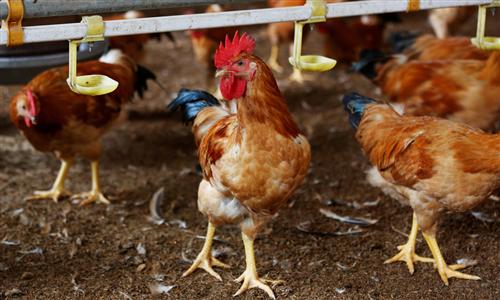Forestry industry to gain export value growth of 10% this year
Forestry industry to gain export value growth of 10% this year
Viet Nam expects to gain a total export value of US$12.5 billion from timber, wooden products and forest products this year, up 10 per cent year on year, according to the Viet Nam Timber and Forest Product Association (VIFORES). 
Of which, $8.68 billion would come from timber exports and $2.99 billion from wooden product exports, while other forest products would gain an export value of $830 million.
In terms of market, the US this year is forecasted to be the largest export market for local timber, wooden and forest products with an expected export value of $6.1 billion, up 15 per cent year on year.
Following is Japan with an export value of $1.52 billion, up 10 per cent; the EU with $1.13 billion, up 10 per cent; and China with $1.21 billion, up 5 per cent.
The US housing market is expected to be brighter this year, leading to an increase in the demand for furniture. That will be an opportunity for Vietnamese wood enterprises to increase their market share in this market, according to VIFORES
Meanwhile, local experts said the US imposing higher import tariffs on Chinese products has caused higher prices for those products in the US market, including furniture, so US companies will increase imports of furniture from other markets, including Viet Nam.
However, local enterprises would face risks relating to origin fraud because made-in-China products could be shipped to Viet Nam and then exported to the US with made-in-Viet Nam labels. That would avoid the high tariffs on Chinese products exported to the US.
To avoid this, experts said State agencies should coordinate with localities to review production and business activities of foreign invested enterprises and products exported from Viet Nam to the US, as well as imported from China to Viet Nam.
In addition, the process of issuing origin certificates should be checked carefully to ensure those certificates are granted to qualified products.
Meanwhile, local businesses need to strengthen cooperation and establish production chains from raw material production to export. Those will reduce transaction and production costs and improve efficiency in production and business.
VIFORES chairman Do Xuan Lap said Vietnamese businesses have exported timber and wood products to the US market for many years, so they have implemented the requirements of this market. Viet Nam has exported artificial wood and softwood such as rubber and acacia wood to the US and imported oak and walnut wood from this market.
Transparency in origin is an important factor, because that helps the local businesses exporting products to the US market avoid anti-dumping tariffs and increase market shares.
Deputy Minister of Agriculture and Rural Development Ha Cong Tuan said the forest industry should focus on developing markets and also production chains to improve quality of wooden products for domestic consumption and export.
Tuan said the State should pay attention to policies on developing other forest products to create a favourable business environment for individuals and businesses producing those products.
In the medium term, according to the association, the forestry sector should promote investment to complete the value chain from production, design to brand.
At present, the value of Viet Nam's wooden products is mainly in the production stage. Meanwhile, on the world market, 70 per cent of the value of one wooden product comes from design and 30 per cent is from production. Moreover, the global market has competitiveness in quality and design but not in price.
Therefore, design and branding are important factors to improve the competitiveness of Viet Nam’s wooden and furniture products in the future.
According to the General Department of Customs, Viet Nam's export value of timber and wood products in 2019 reached $10.65 billion, up 19.5 per cent year on year. Of which, the export value to the US rose by almost 40 per cent to $5.33 billion.
Wooden and furniture products are mainly produced in central and southern provinces, including Binh Duong, Dong Nai, Long An, Tay Ninh and Binh Dinh.

























